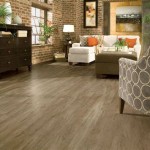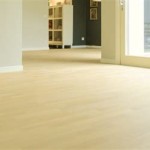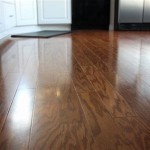Essential Aspects of Basement Flooring: Exploring Your Options
Basements are often overlooked and underutilized spaces in homes. However, with careful planning and the right flooring, they can be transformed into comfortable and functional living areas. Choosing the right basement flooring is crucial to ensure durability, moisture resistance, and aesthetic appeal. Here's a comprehensive guide to help you navigate your basement flooring options:
Understanding Basement Conditions
Before selecting flooring, it's essential to assess your basement's conditions. Key factors to consider include:
*Moisture levels:
Determine if the basement is prone to moisture or flooding. Choose moisture-resistant flooring options to prevent damage and mold growth. *Subfloor type:
Identify the type of subfloor present, whether concrete, wood, or dirt. Different flooring options have specific subfloor requirements. *Usage:
Determine how you intend to use the basement (storage, living space, etc.). This will influence the durability, comfort, and style requirements.Types of Basement Flooring
Once you understand your basement's conditions, you can explore different flooring options:
*Concrete Floor Coatings:
Epoxy, polyurethane, and acrylic coatings provide a durable and moisture-resistant finish to concrete floors. They are easy to clean and maintain. *Vinyl Flooring:
Luxury vinyl tiles (LVT) and vinyl planks (LVP) are waterproof, durable, and offer a wide range of styles and colors. *Laminate Flooring:
Laminate planks provide a wood-like appearance with moisture resistance. However, they are not suitable for areas with heavy moisture. *Carpet:
Carpet adds warmth and comfort but is not ideal for basements prone to moisture. Consider moisture-resistant carpet options if needed. *Rubber Flooring:
Rubber flooring is durable, waterproof, and slip-resistant, making it a good choice for basements used as gyms or playrooms.Factors to Consider
When choosing basement flooring, consider the following factors:
*Durability:
Opt for flooring that can withstand moisture, traffic, and potential impacts. *Moisture resistance:
If moisture is a concern, choose waterproof or moisture-resistant options to prevent damage and mold growth. *Comfort:
Determine the desired level of comfort based on your intended use. *Style:
Select a flooring style that aligns with the basement's décor and overall aesthetic. *Cost:
Consider your budget while selecting flooring options. Different materials and installation methods vary in cost.Installation Considerations
Professional installation is recommended for most basement flooring options. Here are some key considerations:
*Vapor barrier:
Install a vapor barrier beneath the flooring to prevent moisture from seeping into the subfloor. *Subfloor preparation:
The subfloor should be level and free of moisture. Ensure proper preparation before installing the flooring. *Acclimation:
Allow the flooring materials to acclimate to the basement's temperature and humidity before installation.Conclusion
Choosing the right basement flooring is essential to create a functional and inviting space. By understanding your basement's conditions, exploring different flooring options, and considering key factors, you can select the perfect flooring to meet your needs. With the right flooring, your basement can be transformed into a comfortable and beautiful extension of your home.

The Best Flooring Options For Your Basement America

5 Best Flooring Options For Basements Floors2day

What Are The Best Flooring For Basement In Homes

5 Best Flooring Options For Basements Floors2day

The Best Flooring Options For Your Basement America

The Best Flooring Options For Your Basement America

Best Flooring For Basements That Flood Try Waterproof Vinyl

The Best Wood Flooring For Basements Carlisle Wide Plank Floors

The Best Wood Flooring For Basements Carlisle Wide Plank Floors

Best Flooring For Basement Pros And Cons Of
See Also







